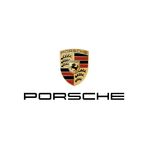Porsche and Volkswagen: A Shift Towards Defense Investment Amidst Turbulent Times
March 27, 2025, 4:54 am
Volkswagen
Location: Germany, Lower Saxony, Wolfsburg
The Porsche-Piëch family, a name synonymous with luxury automobiles, is now eyeing a new frontier: defense. As the world of automotive giants faces headwinds, this billionaire clan is considering a significant pivot. The backdrop is one of rising trade tensions and a faltering demand for vehicles, particularly in China. The family’s holding company, Porsche Automobil Holding SE, is exploring investments that could reshape its future.
The automotive industry is like a high-speed race. One moment, you're in the lead; the next, you're struggling to keep pace. Porsche and Volkswagen are currently in the latter position. Sales are slipping, and the threat of tariffs looms large over their operations in the U.S. market. The stakes are high, and the pressure is mounting on Oliver Blume, the CEO steering both companies through these choppy waters.
In a recent earnings call, the finance chief of Porsche SE, Johannes Lattwein, hinted at a potential third long-term investment. This time, the focus is on sectors that overlap with mobility and industrial technology. Defense and infrastructure are on the table. It’s a bold move, akin to a ship changing course in a storm.
Germany is preparing to unlock a treasure trove of funds for defense and infrastructure projects. This shift signals a new era of spending aimed at modernizing the country’s aging systems. For Porsche SE, this could be a golden opportunity. The family’s decision to explore these sectors could be a lifeline, providing a buffer against the current automotive downturn.
However, the road ahead is not without obstacles. The holding company recently reported a staggering net loss of €20 billion ($21.6 billion). This loss stems from non-cash impairments related to its stakes in Volkswagen and Porsche. The decision to cut dividends reflects the gravity of the situation. It’s a wake-up call, a reminder that even the mightiest can falter.
Despite the turmoil, the Porsche-Piëch family remains steadfast in its commitment to its core holdings. Chairman Hans Dieter Pötsch has made it clear: there are no plans to divest from Volkswagen. The family’s 53% stake in the automaker is not up for grabs. Any decision regarding their investments requires consensus among the clan, a complex web of descendants, many of whom are not actively involved in the business.
Liquidity is a crucial factor in this equation. Porsche SE currently holds €2 billion ($2.16 billion) in cash. The company has no intention of taking on additional debt for new investments. This cautious approach reflects a desire to navigate the uncertain waters without jeopardizing their financial stability.
Lutz Meschke, the former CFO of Porsche, now plays a pivotal role on the management board of the holding company. He is tasked with overseeing the expansion of its non-core portfolio. This is a strategic move, positioning the family to diversify its investments while maintaining a firm grip on its automotive roots.
The automotive landscape is changing rapidly. Electric vehicles, autonomous driving, and sustainability are at the forefront of industry discussions. Yet, the defense sector presents a different kind of opportunity. It’s a realm where stability and government contracts can provide a steady stream of revenue. For the Porsche-Piëch family, this could be a way to balance the volatility of the automotive market.
The potential investment in defense is not just about financial gain. It’s also about influence. As Europe grapples with security challenges, companies involved in defense will play a crucial role. The Porsche-Piëch family could position itself as a key player in this arena, leveraging its resources and expertise.
However, the decision to pivot towards defense must be carefully weighed. The automotive industry is still a significant part of the family’s identity. Any shift must honor that legacy while embracing new opportunities. It’s a delicate dance, balancing tradition with innovation.
In conclusion, the Porsche-Piëch family stands at a crossroads. The automotive industry is facing challenges that require bold decisions. By considering investments in defense and infrastructure, they are looking to secure their future. It’s a strategic move, one that could redefine their legacy. As they navigate these turbulent waters, the world will be watching closely. The outcome could reshape not just their fortunes, but the landscape of the industries they touch. The race is on, and the stakes have never been higher.
The automotive industry is like a high-speed race. One moment, you're in the lead; the next, you're struggling to keep pace. Porsche and Volkswagen are currently in the latter position. Sales are slipping, and the threat of tariffs looms large over their operations in the U.S. market. The stakes are high, and the pressure is mounting on Oliver Blume, the CEO steering both companies through these choppy waters.
In a recent earnings call, the finance chief of Porsche SE, Johannes Lattwein, hinted at a potential third long-term investment. This time, the focus is on sectors that overlap with mobility and industrial technology. Defense and infrastructure are on the table. It’s a bold move, akin to a ship changing course in a storm.
Germany is preparing to unlock a treasure trove of funds for defense and infrastructure projects. This shift signals a new era of spending aimed at modernizing the country’s aging systems. For Porsche SE, this could be a golden opportunity. The family’s decision to explore these sectors could be a lifeline, providing a buffer against the current automotive downturn.
However, the road ahead is not without obstacles. The holding company recently reported a staggering net loss of €20 billion ($21.6 billion). This loss stems from non-cash impairments related to its stakes in Volkswagen and Porsche. The decision to cut dividends reflects the gravity of the situation. It’s a wake-up call, a reminder that even the mightiest can falter.
Despite the turmoil, the Porsche-Piëch family remains steadfast in its commitment to its core holdings. Chairman Hans Dieter Pötsch has made it clear: there are no plans to divest from Volkswagen. The family’s 53% stake in the automaker is not up for grabs. Any decision regarding their investments requires consensus among the clan, a complex web of descendants, many of whom are not actively involved in the business.
Liquidity is a crucial factor in this equation. Porsche SE currently holds €2 billion ($2.16 billion) in cash. The company has no intention of taking on additional debt for new investments. This cautious approach reflects a desire to navigate the uncertain waters without jeopardizing their financial stability.
Lutz Meschke, the former CFO of Porsche, now plays a pivotal role on the management board of the holding company. He is tasked with overseeing the expansion of its non-core portfolio. This is a strategic move, positioning the family to diversify its investments while maintaining a firm grip on its automotive roots.
The automotive landscape is changing rapidly. Electric vehicles, autonomous driving, and sustainability are at the forefront of industry discussions. Yet, the defense sector presents a different kind of opportunity. It’s a realm where stability and government contracts can provide a steady stream of revenue. For the Porsche-Piëch family, this could be a way to balance the volatility of the automotive market.
The potential investment in defense is not just about financial gain. It’s also about influence. As Europe grapples with security challenges, companies involved in defense will play a crucial role. The Porsche-Piëch family could position itself as a key player in this arena, leveraging its resources and expertise.
However, the decision to pivot towards defense must be carefully weighed. The automotive industry is still a significant part of the family’s identity. Any shift must honor that legacy while embracing new opportunities. It’s a delicate dance, balancing tradition with innovation.
In conclusion, the Porsche-Piëch family stands at a crossroads. The automotive industry is facing challenges that require bold decisions. By considering investments in defense and infrastructure, they are looking to secure their future. It’s a strategic move, one that could redefine their legacy. As they navigate these turbulent waters, the world will be watching closely. The outcome could reshape not just their fortunes, but the landscape of the industries they touch. The race is on, and the stakes have never been higher.

